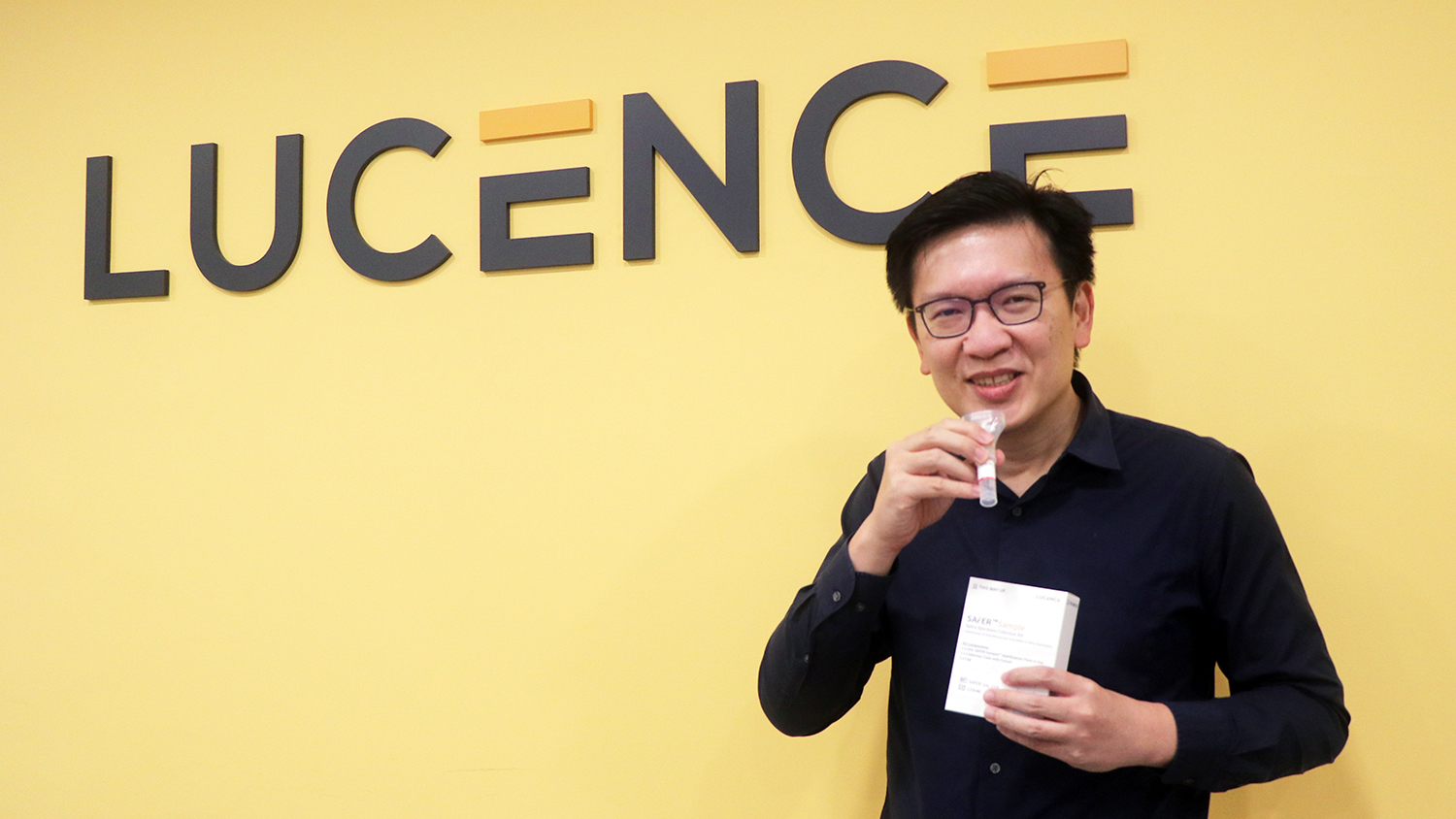A Taste for Innovation
Thu, 08/20/2020 - 12:00
Mass testing is a keystone of Singapore’s strategy in mitigating the COVID-19 pandemic, and local medical company Lucence has launched a saliva kit to make this daunting task easier and more accessible.
Having witnessed outbreaks of dengue and zika in the community, Ms Rachel Sim wanted to make testing of such RNA viral infections more accessible to the community. “Typically, diagnosis is obtained by testing blood. However, blood-taking is invasive and can be very scary for children,” the A*STAR scholar explained. “Hence, we were inspired to develop a saliva collection kit that can achieve mass testing, contain large outbreaks, and be more accessible.”
With this goal in mind, Ms Sim and Dr Tan Min-Han, then-principal investigator at A*STAR’s Institute of Bioengineering and Nanotechnology (IBN) lab, set out to develop the chemistry for such a saliva kit. But when the COVID-19 pandemic came around, they realised that their technology could also be used to test for SARS-CoV-2 – which, coincidentally, is also an enveloped RNA virus.
The technology has since been adapted by the team into a saliva sample kit for coronavirus detection, SAFER-Sample. Less painful and risky than the nasopharyngeal swab – currently the most common method of COVID-19 testing – the saliva kit also makes use of a reagent that makes the samples easier and safer to collect and transport.
It was launched under Singapore medical company Lucence, a spin-off from the IBN lab. Developing this reagent was the starting point for the development of the kit, said Ms Sim, who is currently in her final year of her PhD studies in chemical biology at the University of Oxford. She explained that saliva samples tend to degrade rapidly at room temperature, which reduces the accuracy of diagnostic results.
It took the team about half a year to find the right formulation, but several rounds of testing later, the stabilising reagent was optimised to be able to keep viral RNA stable at room temperature for up to one week without degradation. This also helps cut costs by removing the need for cold chain transport, which is expensive and can limit testing geography – for instance, in countries where access to refrigeration is intermittent. The chemistry reagent has also been enhanced so it can inactivate SARS-CoV-2 within 45 seconds of sample collection. “This means enhanced safety and reduced risk of exposure for any individual involved in the collection, transport, and testing processes,” explained Dr Tan, now chief executive officer and medical director of Lucence.
Today, SAFER is already being used in hospitals and clinics in Hong Kong, where saliva was approved for mass testing in February. Lucence is also working on more validation studies here in Singapore, where the kit is already registered as a Class A medical device, to ensure its feasibility and reliability. It is also collaborating with local precision engineering company Akribis to develop a robotic saliva solubilisation platform to process SAFER saliva samples automatically for medical labs, with the first automated unit to be deployed in August 2020.
Although some experts still question the reliability of using saliva samples to detect COVID-19, Lucence is hopeful that the kit will eventually be used for airport testing around the world, as well as in mass testing and screening in communities. “SAFER is already used in Hong Kong SAR, where saliva was first approved for mass-testing in February 2020,” said Dr Tan. “We believe that airport testing is key to enable restoration of travel and the economy.”
Furthermore, there has been emerging evidence that saliva sampling can be more sensitive than conventional nasopharyngeal swabs. And as saliva sampling is less invasive and more accessible, using saliva sampling for mass testing could improve compliance and pick-up rates.
Even though it was originally meant to target an entirely different outbreak, Ms Sim is proud to see her research turned into a commercial product that is helping to mitigate the COVID-19 pandemic. “I learnt that it is important to evolve your technology around changing needs,” she said. “When we constantly question our existing knowledge and persistently pursue new knowledge, we can find innovative ways to solve problems.”
The success of this project has motivated Ms Sim to work on developing more technologies that can help to solve the many problems we face today. “I am still very much in the early stages of my research career and have much more to learn,” she said. “Now, when I work on my research, I also consider more about potential applications and how to commercialise my research findings.”
This article was first published on National Research Foundation’s RIE News Magazine. At SGInnovate, we work with entrepreneurial scientists to build and scale their companies.
Lucence is one of our portfolio companies.
Trending Posts
- A Guide to Singapore’s Cell & Gene Therapy Ecosystem
- A Guide to Singapore’s Hydrogen Ecosystem
- Walking the tightrope of disclosure to create a robust IP strategy
- Why intellectual property (IP) strategy can mean the difference between life and death for a startup
- Going behind-the-scenes in a MedTech startup for a 6-month internship to create lasting impact






